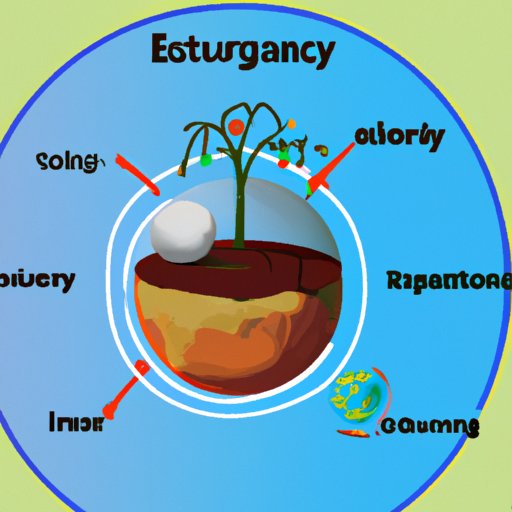Introduction
Natural science is a broad field of study that encompasses the physical world, from the smallest particles to the vast universe. It is the scientific study of the natural world, including the behavior of living organisms, the composition and structure of matter, and the phenomena of the physical universe. Natural science focuses on observing, understanding, and explaining the natural world through experimentation, observation, and data collection.
At its core, natural science is divided into four main branches: biology, chemistry, physics, and earth science. Each branch has its own unique area of focus and contributes to our understanding of the natural world. In addition, natural science has a long and rich history, with many discoveries in the past centuries leading to advancements in technology and improved quality of life.

Exploring the Branches of Natural Science
Biology is the scientific study of living organisms, including their structure, physiology, evolution, classification, and interactions. It is a diverse field that covers topics such as genetics, cell biology, ecology, anatomy, and biochemistry. Biology also studies the behavior of living organisms, including how they interact with their environment and with each other.
Chemistry is the scientific study of the composition, structure, properties, and reactions of matter. It covers topics such as atomic structure, chemical bonding, thermodynamics, and kinetics. Chemistry is used to explain the behavior of matter and its interactions with other forms of matter.
Physics is the scientific study of matter, energy, and their interactions. It covers topics such as mechanics, electricity, magnetism, optics, and thermodynamics. Physics seeks to understand the fundamental laws of nature and how they govern the behavior of matter and energy in the universe.
Earth science is the scientific study of the Earth and its features, including its atmosphere, hydrosphere, lithosphere, and biosphere. It covers topics such as geology, oceanography, meteorology, and climatology. Earth science seeks to understand the processes that shape the Earth and its environment.

Investigating the Role of Natural Science in Society
Natural science plays an important role in society, providing knowledge and insights that can be applied to improve the quality of life. Through research and experimentation, scientists have made major breakthroughs in medicine, agriculture, industry, and technology.
“The power of modern science lies in its ability to identify, explain, and manipulate natural phenomena,” says Dr. Michael Schmid, professor of physics at the University of Toronto. “These advances have led to increased efficiency and safety in industrial processes, and have enabled us to develop new technologies that have revolutionized our lives.”
Research in natural science has also led to improvements in healthcare. Medical professionals are able to diagnose and treat diseases more effectively thanks to advances in biology, chemistry, and physics. New treatments and medications are developed every day, allowing us to live longer, healthier lives.
In addition, natural science has enabled us to develop new technologies that have revolutionized the way we live. From smartphones and computers to space exploration and renewable energy, natural science has made it possible for us to explore and innovate in ways that were not previously possible.
Analyzing the Impact of Natural Science on the Environment
Natural science has had both positive and negative impacts on the environment. On one hand, research in natural science has enabled us to develop renewable energy sources, such as solar, wind, and hydroelectric power. This has helped reduce the amount of greenhouse gases released into the atmosphere, helping to mitigate the effects of climate change.
On the other hand, some of the technologies developed through natural science have had a negative impact on the environment. For example, the burning of fossil fuels releases pollutants into the atmosphere, which can cause air and water pollution. In addition, some technologies, such as intensive agriculture and deforestation, have had a detrimental effect on the environment.
Conclusion
Natural science is a broad field of study that encompasses the physical world, from the smallest particles to the vast universe. The four main branches of natural science are biology, chemistry, physics, and earth science. Research in natural science has enabled us to develop new technologies that have revolutionized the way we live, while also having both positive and negative impacts on the environment.
Understanding natural science is essential for advancing technology, improving the quality of life, and protecting the environment. By continuing to explore the natural world, we can make discoveries that will benefit humanity in the future.
(Note: Is this article not meeting your expectations? Do you have knowledge or insights to share? Unlock new opportunities and expand your reach by joining our authors team. Click Registration to join us and share your expertise with our readers.)
